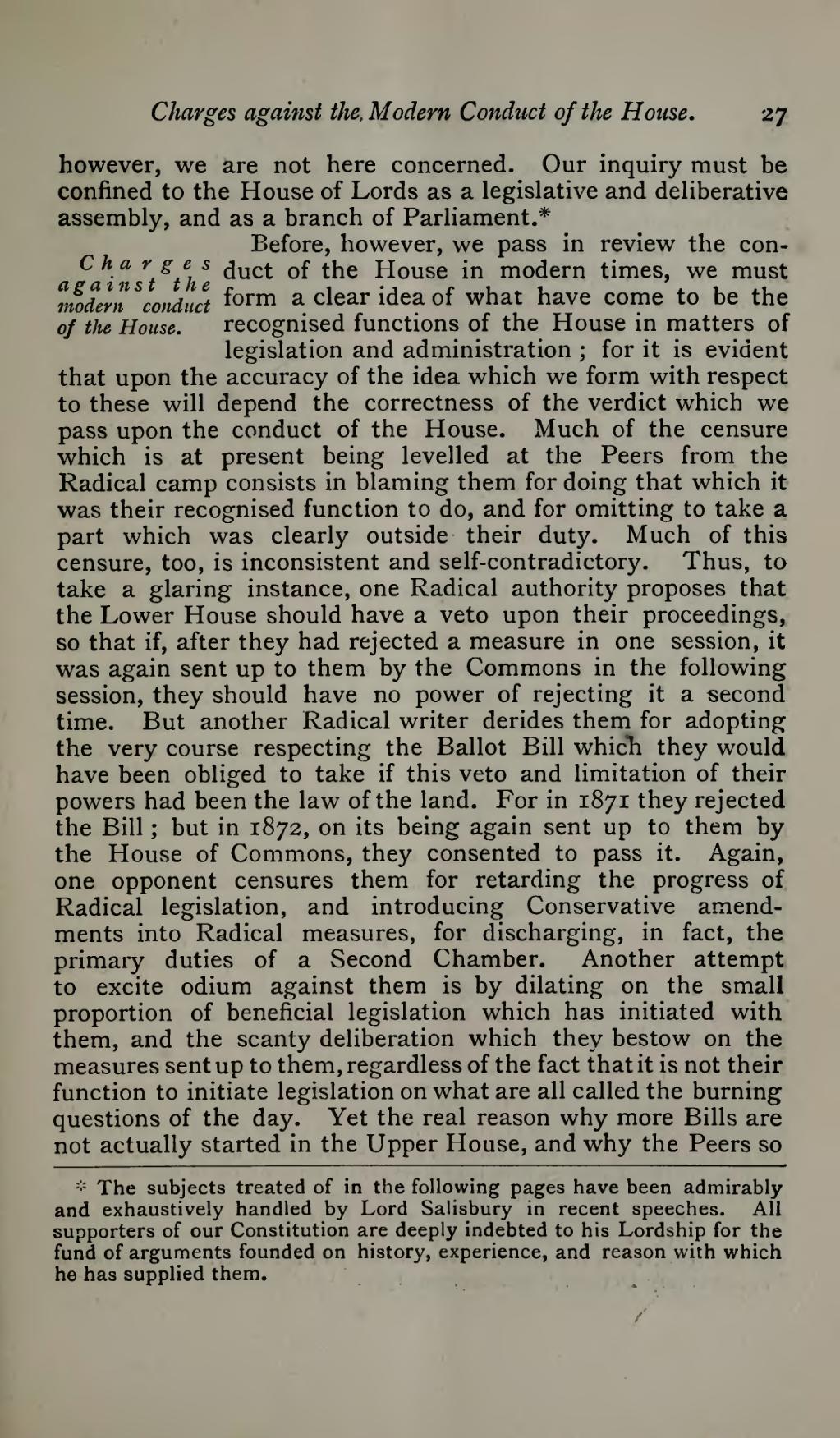This page has been validated.
Charges against the, Modern Conduct of the House.
27
however, we are not here concerned. Our inquiry must be confined to the House of Lords as a legislative and deliberative assembly, and as a branch of Parliament.[1]
Charges against the modern conduct of the House.Before, however, we pass in review the conduct of the House in modern times, we must form a clear idea of what have come to be the recognised functions of the House in matters of legislation and administration; for it is evident that upon the accuracy of the idea which we form with respect to these will depend the correctness of the verdict which we pass upon the conduct of the House. Much of the censure which is at present being levelled at the Peers from the Radical camp consists in blaming them for doing that which it was their recognised function to do, and for omitting to take a part which was clearly outside their duty. Much of this censure, too, is inconsistent and self-contradictory. Thus, to take a glaring instance, one Radical authority proposes that the Lower House should have a veto upon their proceedings, so that if, after they had rejected a measure in one session, it was again sent up to them by the Commons in the following session, they should have no power of rejecting it a second time. But another Radical writer derides them for adopting the very course respecting the Ballot Bill which they would have been obliged to take if this veto and limitation of their powers had been the law of the land. For in 1871 they rejected the Bill; but in 1872, on its being again sent up to them by the House of Commons, they consented to pass it. Again, one opponent censures them for retarding the progress of Radical legislation, and introducing Conservative amendments into Radical measures, for discharging, in fact, the primary duties of a Second Chamber. Another attempt to excite odium against them is by dilating on the small proportion of beneficial legislation which has initiated with them, and the scanty deliberation which they bestow on the measures sent up to them, regardless of the fact that it is not their function to initiate legislation on what are all called the burning questions of the day. Yet the real reason why more Bills are not actually started in the Upper House, and why the Peers so- ↑ The subjects treated of in the following pages have been admirably and exhaustively handled by Lord Salisbury in recent speeches. All supporters of our Constitution are deeply indebted to his Lordship for the fund of arguments founded on history, experience, and reason with which he has supplied them.
